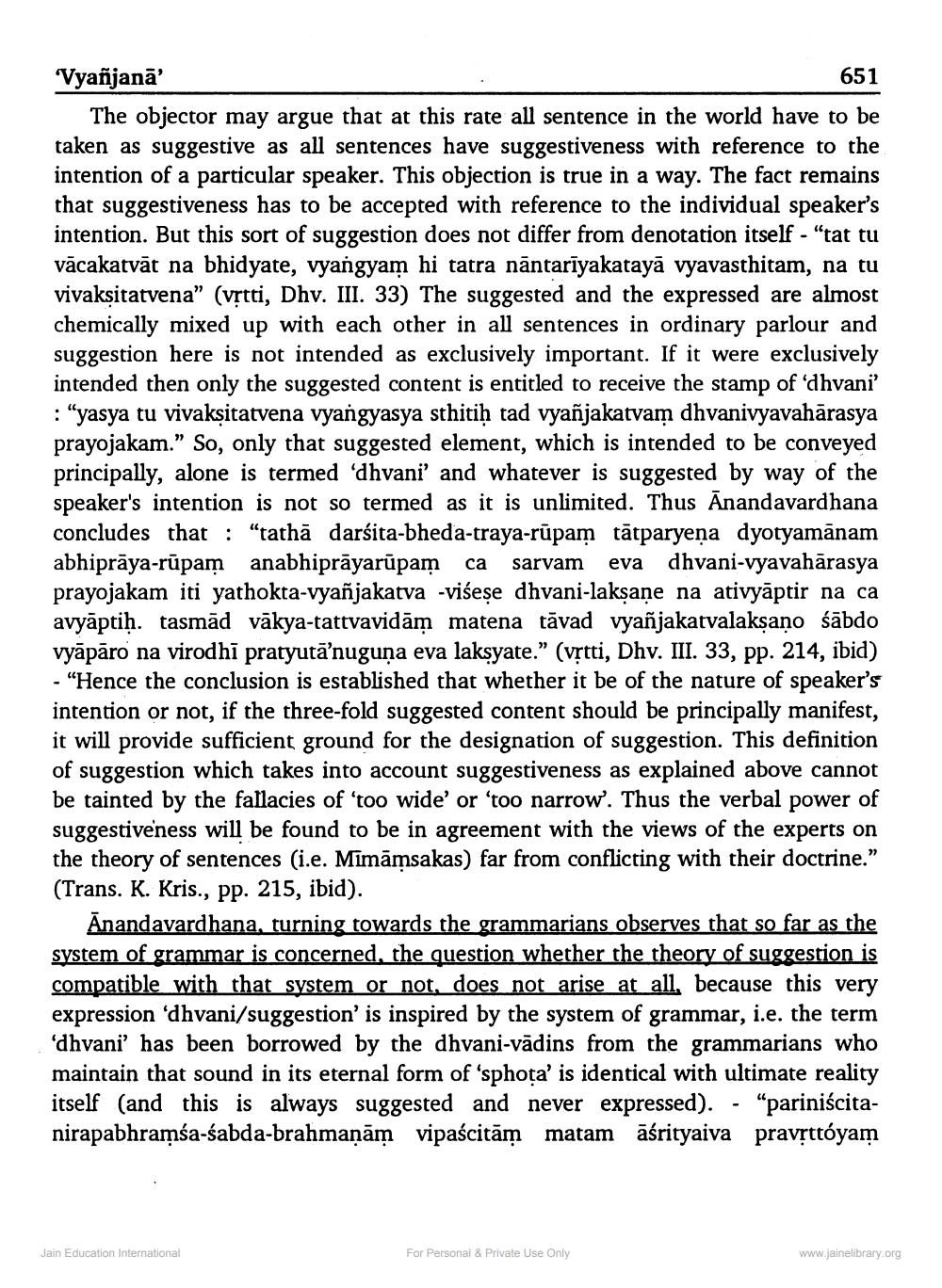________________
651
'Vyañjanā
The objector may argue that at this rate all sentence in the world have to be taken as suggestive as all sentences have suggestiveness with reference to the intention of a particular speaker. This objection is true in a way. The fact remains that suggestiveness has to be accepted with reference to the individual speaker's intention. But this sort of suggestion does not differ from denotation itself - "tat tu vācakatvāt na bhidyate, vyangyam hi tatra nāntarīyakatayā vyavasthitam, na tu vivaksitatvena" (vștti, Dhv. III. 33) The suggested and the expressed are almost chemically mixed up with each other in all sentences in ordinary parlour and suggestion here is not intended as exclusively important. If it were exclusively intended then only the suggested content is entitled to receive the stamp of dhvani' : “yasya tu vivaksitatvena vyangyasya sthitiḥ tad vyañjakatvam dhvanivyavahārasya prayojakam." So, only that suggested element, which is intended to be conveyed principally, alone is termed dhvani' and whatever is suggested by way of the speaker's intention is not so termed as it is unlimited. Thus Anandavardhana concludes that : "tathā darśita-bheda-traya-rūpam tātparyeņa dyotyamānam abhiprāya-rūpam anabhiprāyarūpam ca sarvam eva dhvani-vyavahārasya prayojakam iti yathokta-vyañjakatva -višese dhvani-laksane na ativyāptir na ca avyāptih. tasmād vākya-tattvavidām matena tävad vyañjakatvalaksano śābdo vyāpāro na virodhī pratyutā’nuguņa eva laksyate.” (vrtti, Dhv. III. 33, pp. 214, ibid) - "Hence the conclusion is established that whether it be of the nature of speaker's intention or not, if the three-fold suggested content should be principally manifest, it will provide sufficient ground for the designation of suggestion. This definition of suggestion which takes into account suggestiveness as explained above cannot be tainted by the fallacies of 'too wide' or 'too narrow'. Thus the verbal power of suggestiveness will be found to be in agreement with the views of the experts on the theory of sentences (i.e. Mimāmsakas) far from conflicting with their doctrine.” (Trans. K. Kris., pp. 215, ibid).
Anandavardhana, turning towards the grammarians observes that so far as the system of grammar is concerned, the question whether the theory of suggestion is compatible with that system or not, does not arise at all, because this very expression dhvani/suggestion' is inspired by the system of grammar, i.e. the term dhvani' has been borrowed by the dhvani-vādins from the grammarians who maintain that sound in its eternal form of 'sphota' is identical with ultimate reality itself (and this is always suggested and never expressed). - "pariniścitanirapabhramśa-sabda-brahmaņām vipaścitām matam āśrityaiva pravsttóyam
Jain Education Interational
For Personal & Private Use Only
www.jainelibrary.org




